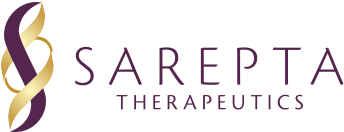December 2020
Addressing your questions about COVID-19 vaccination and gene therapy
Sarepta has received many questions related to COVID-19 vaccines and gene therapy. Here, we provide current answers to some of these frequently asked community questions. Answers are based on the information available as of December 18, 2020, and are subject to change based on new information. For more on COVID-19 vaccines, please view the CDC’s COVID-19 website. Disclaimer: whether or not to vaccinate is a medical decision, and should be discussed with a healthcare provider.
COVID-19 VACCINES AND ELIGIBILITY FOR CLINICAL TRIALS.
- Will COVID vaccination be required for entry to a Sarepta clinical trial?
We currently have no plans to require COVID vaccination for participation in a Sarepta clinical trial.
- Will COVID vaccination be an exclusion criterion for a Sarepta gene therapy trial?
By current protocol, gene therapy clinical trial participants cannot receive a live vaccine within ~4 weeks or an inactive vaccine within ~2 weeks of the Day 1 gene therapy visit. Additionally, participants cannot receive vaccines during ~3 months after the Day 1 visit. This policy is based on CDC guidance which is subject to change. These policies are in place for safety reasons and because the increased steroids given with gene therapy could lessen the intended effect of a vaccine. Note that this restriction would apply to each dose of a vaccine, if more than one dose is required.
COVID-19 VACCINES/MEDICINES AND AAV ANTIBODIES.
Families have asked about the potential implications of COVID-19 vaccination as it relates to future gene therapy. Because gene therapy is delivered by an AAV vector and terms like adenovirus, AAV, and mRNA are in vaccine news, people want to know if a vaccine may impact the future opportunity for treatment with gene therapy. For more background on antibodies and other topics related to gene therapy, check out our GT-FAQ video series available on our social media channels.
- Could an mRNA-based COVID-19 vaccine cause a person to generate antibodies against AAV?
There is no evidence to suggest that an mRNA COVID-19 vaccine would cause AAV antibody development. An mRNA vaccine aims to teach the body to recognize and defend against one protein that is specific to COVID-19 (i.e. the COVID spike protein). If it works as intended, the immune response – with antibodies that target the COVID spike protein - would be triggered if the body is later infected with COVID-19. As AAV (adeno-associated virus) is unrelated to the virus causing COVID-19 and does not contain the COVID spike protein, we do not expect an immune response to AAV-based gene therapy as a result of an mRNAbased COVID-19 vaccine.
- Could an adenovirus-based COVID-19 vaccine cause a person to generate antibodies against AAV?
There is no evidence to suggest that an adenovirus-based vaccine could cause the production of antibodies against AAV. AAV (adeno-associated virus) and adenovirus are two distinct viruses. The antibodies that recognize adenovirus are not expected to be the same as antibodies that recognize AAV.
- Could an AAV-based COVID-19 vaccine cause a person to generate antibodies against AAV?
COVID-19 vaccines/medicines utilizing AAV as a delivery vehicle are currently in early-stage development. Given our current knowledge, we cannot definitively answer the question as to whether these AAV-based vaccines/medicines could cause one to develop antibodies to AAV, or whether antibodies developed would recognize vectors used in AAV-based gene therapies. Clarity around this question will be important to pursue as AAV-based COVID-19 vaccines/medicines advance through development.
